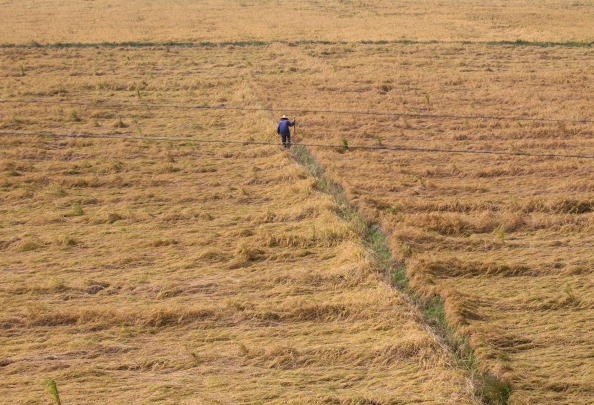Chinese scientists are developing a new rice variety through the use of genome-wide breeding chip technology, the Xinhua News Agency reported.
Citing an announcement from the China National Seed Group on Saturday, the article noted the disease- and insect-resistant rice will be grown and cultivated in the Heilongjiang Province in northeast China.
Zhang Qifa of the Chinese Academy of Sciences noted that "the use of pesticides and chemical fertilizers have caused environmental and food safety problems," adding that the "genome-wide chip helps develop a new variety to cope with the problem."
During a signing ceremony with Rongzhong Capital Investment held in Wuhan City, Hubei, the China National Seed Group revealed that the rice will be the first of its kind in the country.
It was in May 2012 when scientists from the company, together with researchers from the Peking University and the Huazhong Agricultural University, started working on the endeavor. The group chose over 40,000 useful gene markers from an array of countless gene data, and subsequently developed the world's first genome-wide breeding chip.
According to Zhou Fasong, China National Seed Group's lead scientist, the chip significantly contributed to improving "the diseases and insects resistance of the current rice variety."
"We have been identifying the genes in the past five years, and recently finally developed the new breed," Zhou added.
Xinhua stated that the cultivation of the new disease- and insect-resistant rice variety in the Heilongjiang Province will commence in April.
A report from Reuters previously stated that worldwide, China consumes approximately one-third of global fertilizers. As the country saw increase in the production of various agricultural products, the use of fertilizers also rapidly grew.
Xinhua noted that for the past three decades, the use of chemical fertilizers increased by an average of 5.2 percent per year.
Apart from water source pollution, chemical fertilizers are also contaminating agricultural lands with heavy metals and leaving high pesticide residues on food.



























